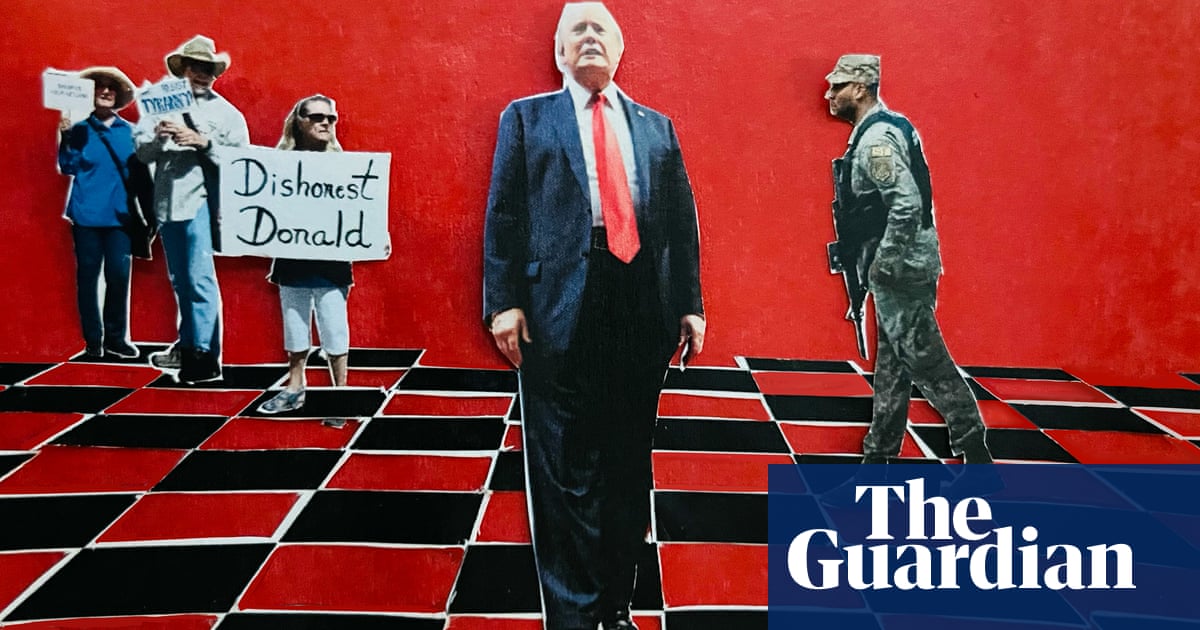Washington insiders simulated a second Trump presidency. Can a role-play save democracy?

🌈 Abstract
The article discusses a series of wargaming exercises conducted by the Brennan Center for Justice to simulate a hypothetical scenario where Donald Trump wins the 2025 presidential election and takes authoritarian actions to consolidate power. The exercises involved prominent figures from both political parties playing out various scenarios, including Trump invoking the Insurrection Act to deploy the military against protests, politicizing federal agencies to target his opponents, and pursuing mass deportations of undocumented immigrants. The exercises aimed to identify potential threats to democracy and explore ways to protect it in the face of possible abuses of power by an authoritarian-minded president.
🙋 Q&A
[01] The Wargaming Exercises
1. What were the key scenarios explored in the wargaming exercises?
- The exercises simulated Trump invoking the Insurrection Act to deploy the military against protests, politicizing federal agencies to target his opponents, and pursuing mass deportations of undocumented immigrants.
- Other scenarios included Trump firing the Joint Chiefs of Staff and replacing them with officers who would follow his orders, as well as efforts to purge the civil service of disloyal individuals and withhold federal funding from universities.
2. What were the key findings and takeaways from the exercises?
- Participants were sobered by the experience and discovered that there were fewer effective restraints against authoritarian actions than they had expected.
- The exercises highlighted concerns about the reliability of the courts and the federal judiciary, as well as the increased experience and capability of Trump and his associates in working the federal apparatus.
- Participants suggested that state governors, state attorneys general, and civil servants could play a role in blocking or slowing down federal abuses, and that public protest and mobilization could also help set boundaries on authoritarian behavior.
3. What was the purpose of the wargaming exercises?
- The exercises were intended to identify potential threats to democracy and explore ways to protect it in the face of possible abuses of power by an authoritarian-minded president.
- The organizers wanted to sound the alarm about the lack of preparation for such scenarios and to inform public debate on the issue.
[02] The Broader Context
1. What is the current political landscape that led to the organization of these exercises?
- The exercises were organized amid growing concerns about the potential for Trump to make a political comeback and pursue authoritarian actions, as evidenced by his efforts to overturn the 2020 election results.
- The sense of urgency surrounding the exercises has intensified due to recent events, such as the attempt on Trump's life at a Pennsylvania rally and the uncertain course of the 2025 election.
2. How do the exercises relate to the 2020 wargaming exercises conducted by the Transition Integrity Project?
- The 2020 wargaming exercises accurately predicted many of the events that unfolded in the lead-up to the January 6th attack on the US Capitol, lending credibility to the current exercises.
- The scenarios explored in the current exercises were also based on explicit statements and actions by Trump and his allies, making them grounded in reality rather than purely hypothetical.
3. What are the broader implications of the wargaming exercises for the state of American democracy?
- The exercises have highlighted the fragility of American democratic institutions and the potential for an authoritarian-minded president to undermine them.
- The findings suggest that there is a need for greater preparation and vigilance to protect democracy, as well as the involvement of a wider range of stakeholders, including state and local officials, civil servants, and the public.